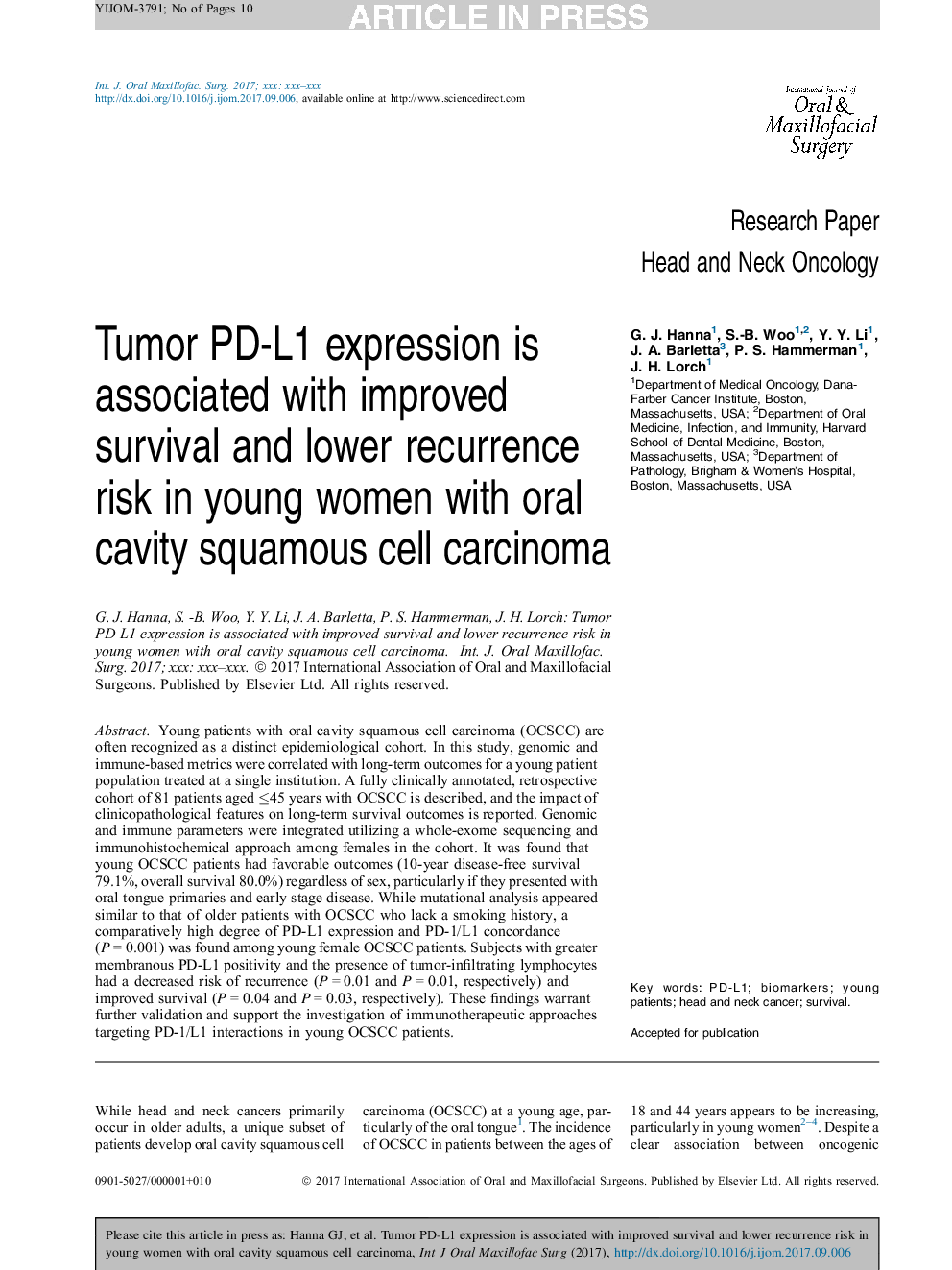| Article ID | Journal | Published Year | Pages | File Type |
|---|---|---|---|---|
| 8697818 | International Journal of Oral and Maxillofacial Surgery | 2018 | 10 Pages |
Abstract
Young patients with oral cavity squamous cell carcinoma (OCSCC) are often recognized as a distinct epidemiological cohort. In this study, genomic and immune-based metrics were correlated with long-term outcomes for a young patient population treated at a single institution. A fully clinically annotated, retrospective cohort of 81 patients aged â¤45 years with OCSCC is described, and the impact of clinicopathological features on long-term survival outcomes is reported. Genomic and immune parameters were integrated utilizing a whole-exome sequencing and immunohistochemical approach among females in the cohort. It was found that young OCSCC patients had favorable outcomes (10-year disease-free survival 79.1%, overall survival 80.0%) regardless of sex, particularly if they presented with oral tongue primaries and early stage disease. While mutational analysis appeared similar to that of older patients with OCSCC who lack a smoking history, a comparatively high degree of PD-L1 expression and PD-1/L1 concordance (P = 0.001) was found among young female OCSCC patients. Subjects with greater membranous PD-L1 positivity and the presence of tumor-infiltrating lymphocytes had a decreased risk of recurrence (P = 0.01 and P = 0.01, respectively) and improved survival (P = 0.04 and P = 0.03, respectively). These findings warrant further validation and support the investigation of immunotherapeutic approaches targeting PD-1/L1 interactions in young OCSCC patients.
Related Topics
Health Sciences
Medicine and Dentistry
Dentistry, Oral Surgery and Medicine
Authors
G.J. Hanna, S.-B. Woo, Y.Y. Li, J.A. Barletta, P.S. Hammerman, J.H. Lorch,
